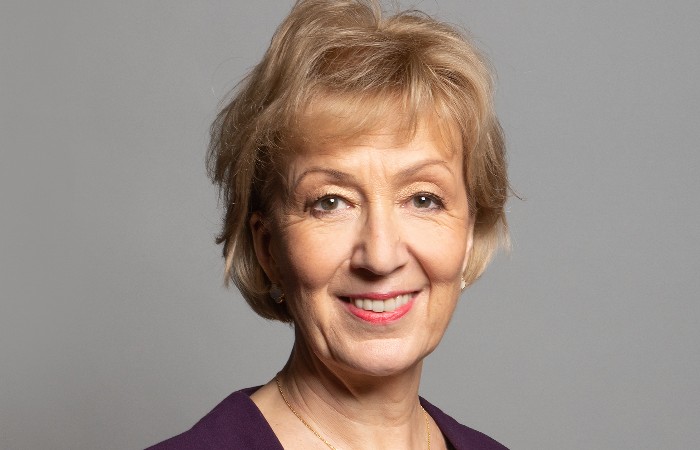PDA warns Leadsom about potential risks of pharmacy technicians’ clinical roles
In Profession news
Follow this topic
Bookmark
Record learning outcomes
The Pharmacists’ Defence Association has written to the pharmacy minister Andrea Leadsom to express its concern that pharmacy technicians being given certain clinical roles and enjoying “parity of esteem” with pharmacists is unrealistic and potentially dangerous for patients.
In its letter on Monday, the PDA warned there is a “very significant difference between the training and formation” of pharmacists and pharmacy technicians which made the latter unsuitable to carry out certain tasks such as diagnosing illness and using patient group directions which pharmacy’s union said “can be a clinically challenging process.”
The PDA said it wanted to make Leadsom aware of the "cumulative risks to patient safety that are now starting to build over time because of the undeniable move towards allowing pharmacy staff to undertake activities which are inappropriate to their educational standard."
“(PGDs involve) aspects of diagnosis which lead to the making of important clinical decisions such as whether a particular medicine is safe and suitable for that individual patient following a full and comprehensive history taking, including an analysis and an understanding of their underlying medical conditions, their likely impact upon metabolism, the need for dosage adjustment as well as any contra-indications,” the PDA said.
“The suggestion is that pharmacy technicians will be capable of treating members of the public that walk into a community pharmacy without even making an appointment.”
The PDA attempted to reinforce its claims by comparing the education and training of pharmacists and pharmacy technicians. Less than 50 per cent of pharmacy technicians on the register, it said, have taken the General Pharmaceutical Council-approved NVQ level 3 qualification route to registration and those who have completed that “have reached only the equivalent standard of one A level.”
By comparison, the PDA said, pharmacists must have three A levels with high pass rates to gain entry to a four-year university master’s degree, followed by a year of professional examination that “is so rigorous, it allows only 80 per cent of those who undertake it to enter the register of pharmacists.”
“Currently, pharmacy undergraduates are also being trained to become independent prescribers. There is a very significant difference between the training and formation of the pharmacists and that of the pharmacy technicians,” the PDA said, adding “the nearest comparator for PGD delivery in other healthcare sectors is at NVQ level 5 or 6 and even at level 7.”
New roles 'way beyond' pharmacy technicians’ NVQ level 3 capability
It warned the new roles and services being developed by the NHS “are way beyond” pharmacy technicians’ “NVQ level 3 capability.” The PDA also drew parallels with concerns raised by the British Medical Association about the emergence of physician associates.
In November, the BMA called for an immediate halt to the recruitment of medical associate professionals (MAPs) in the UK, including physician associates and anaesthesia associates over concerns for patient safety until it received guarantees from the government and NHS that they are properly regulated and supervised.
This month, the BMA published guidance that stated physician associates must not diagnose patients following the death in 2022 of 30-year-old Emily Chesterton, whose fatal blood clot was missed twice by a physician associate. The BMA also called for more clarity on the roles of MAPs to avoid confusion among patients and stop respect for clinicians being “eroded.”
Similarly, the PDA said it was concerned the term ‘pharmacy professionals,’ used by the government, the NHS, pharmacy regulators, the Royal Pharmaceutical Society and APTUK to collectively describe pharmacists and pharmacy technicians, confuses patients, policy-makers and politicians. The PDA urged Leadsom to take “appropriate steps to end the practice.”
Insisting it “wholeheartedly supported” pharmacists and pharmacy technicians “working in a complementary way to deliver a growing range of services for the benefit of patients,” the PDA said: “We would be concerned about patients seeing a pharmacy technician thinking that they are seeing a pharmacist.
“Our evidence shows that, when patients are taken through who they are seeing and what the role is of that professional, there is generally a good experience of care. The point around patient education and awareness is really important.”
Both professions have ‘long history’ of ‘working effectively together’
APTUK president Nicola Stockmann told Independent Community Pharmacist that in the 13 years since pharmacy technicians were first regulated and registered by the GPhC, their roles “have evolved to recognise the changing healthcare landscape.”
“Many pharmacy technicians have also undertaken post-registration education to reflect their scope of practice and contributions to patient services,” she said. “As the scope of practice for the entire pharmacy team expands with pharmacists’ independent prescribing and the potential impact of proposals on recent pharmacy consultations, autonomous registered pharmacy professionals are responsible for their practice and their continued professional development.
“Skills and competence of individual development to reflect the demand and expansion of scope must also be supported in the workplace environment.”
Insisting pharmacists and pharmacy technicians have “a long history” of “working effectively together,” Stockmann added: “Pharmacy technicians and pharmacists have different and complementary skills, both able to support patient care and experience.”
She said APTUK strongly advocated the use of the protected title ‘pharmacy technician’ to “support patient understanding of the different roles within pharmacy.”
“This is important to encourage awareness of the valuable contribution pharmacy technicians make and provide assurance to the public of their regulated position,” she said.
Stockmann, who gave evidence during the health and social care committee’s inquiry into pharmacy on behalf of APTUK, said she welcomed “ongoing opportunities to brief colleagues and members of parliament on current professional practice of pharmacy technicians.”
Image: www.parliament.uk

